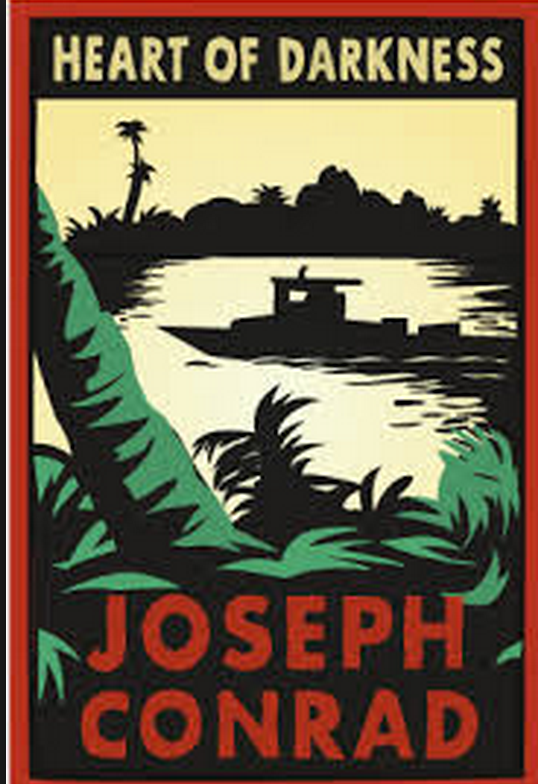Heart of Darkness Book Review
January 28, 2015
Both movie lovers and book lovers will have something to appreciate in this novella, regardless if you have read Heart of Darkness before. First published in 1899, Joseph Conrad’s Heart of Darkness depicts the semi-autobiographical experiences of Charles Marlow, a sailor who becomes obsessed with a man by the name of Mr. Kurtz as he transports ivory in Central Africa. The novel is well known for its depiction of European colonialism and the brutal racism accompanied with it. In fact, the term “heart of darkness” as represented in the book, applies to more than just the vividly horror-filled jungle and river of the Congo, but to the lengths humans can go to when treating each other. This broad implication, apart from making this novel well-written and famous, is the basis for many adaptations of Heart of Darkness, namely the 1979 Oscar-winning film Apocalypse Now. Now you know why I mentioned movie lovers would also have something to enjoy in this novella-but enough of that now, time to describe this under-100 page piece of literature.
As previously mentioned, the central theme of this novella is the horrors of imperialism. From start to finish, Conrad gives a rise-and-fall story of the protagonist, (who is partially based off of Conrad himself) Charles Marlow. At the beginning of the novel, Marlow applies for a captain’s position at a Belgian ivory company – just a man looking to make a nice little living transporting ivory. But, as the novel progresses, Marlow becomes demoralized by what he sees during his journey. He witnesses the brutal treatment of the natives, the generally poor status of the ivory stations he arrives at, and the gruesome intentions of other, “civilized” human beings. In fact, that is another spectacular theme Conrad presents: those who are “civilized” (i.e. the white men) call the natives barbaric, while they themselves act like barbarians. Treating the natives as slaves, seeking out what suits their personal interests. Particularly with the latter, the mission to find Mr. Kurtz is founded on the ill-intentions of the ivory company’s chief accountant.
The haunting character of Mr. Kurtz had fallen ill when Marlow first heard of him. So, since Mr. Kurtz also happened to be the most successful ivory collector, Marlow and several other company men set out to retrieve Kurtz. But, as it is almost immediately revealed to the reader, the only reason they want to find Kurtz is to take control of his station in order to gain more profits. I won’t reveal any more specifics of the plot.
Now, not to sell the novel short, but there is only so much to discuss in a review of a 96-page novella. With that said, apart from what Conrad says about the nature of human beings and the horrid nature of imperialism, the details in the novel also make it special. Just imagine, the landscape of late-19th century Central Africa, a handful of outsiders in the belly of the beast – the Congo River in all its glory. There is one particular sequence, when the boat is stuck in the river at night and there is a heavy fog, where Conrad conveys a true sense of horror and fear by both illustrating the landscape and the reactions of the characters. This combination of description adds all the more effect in several parts of the novel where nature is in fact the greatest enemy of the characters.
Through skilled description, morbid irony, and fearful ambiguity, Joseph Conrad creates a worthwhile novella in Heart of Darkness. So please, if you wish to read a nice, short, novel which transports you into the dark depths of nature and the human soul, (or if you just enjoy the movie Apocalypse Now,) pick up a copy of Heart of Darkness.
